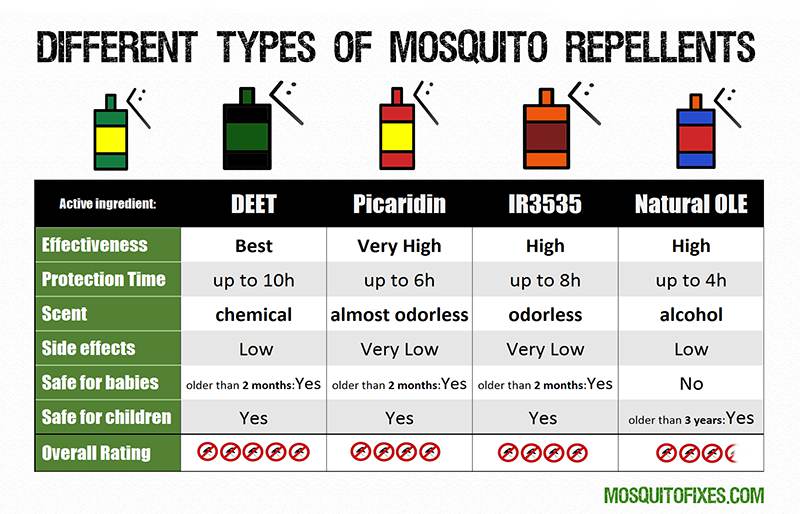Is DEET harmful to humans?

Why is DEET not good for you
People that have left DEET products on their skin for extended periods of time have experienced irritation, redness, a rash, and swelling. People that have swallowed products containing DEET have experienced stomach upset, vomiting, and nausea. Very rarely, exposure to DEET has been associated with seizures in people.
How carcinogenic is DEET
The U.S. Department of Health and Human Services (DHHS) has not classified DEET as to its carcinogenicty (cancer causing ability). The U.S. Environmental Protection Agency (EPA) has determined that DEET in not classifiable as a human carcinogen.
Is it safe to use DEET everyday
Apply a repellent with DEET no more than once a day. DEET can be put on exposed skin, as well as clothing, socks, and shoes. But don't use it on your child's face, under clothing, on cuts or irritated skin, or on the hands of young children.
Does DEET absorb into your skin
Small quantities of DEET (less than 10–20% of the applied DEET) can be absorbed through your skin. In addition, if your skin contacts water with DEET in it, you may absorb some DEET through your skin.
Is DEET banned in the UK
Yes, our Expedition 100+ DEET Insect Repellent spray remains compliant and available for sale in the UK and Ireland. Do I need to look out for authorisation numbers on the packaging No, some repellents will have numbers, some won't, it depends on many factors about the repellent that you may be looking at.
What’s better DEET or no DEET
Most experts we consulted agreed that DEET is the most effective active ingredient in an insect repellent.
Is DEET banned in Germany
No, as part of the regulatory process 100% DEET products are now being withdrawn throughout the European market and will no longer be available. DEET repellents over 50% in strength will not be legal for sale in the EU after 2016.
Does DEET have long term effects
Most cases of serious side effects caused by DEET involve long-term, heavy, frequent or whole-body application of the repellent. But for some people, DEET can lead to adverse skin reactions, seizures and brain malfunction, fatigue, respiratory conditions and possibly even cancer.
Is 100% DEET safe on skin
Using insect repellents containing DEET should not be harmful if label directions are followed and the product is used safely. In rare cases, using DEET products may cause skin rashes.
Can you sleep with DEET on
It's not advisable to wear DEET-based sprays while you sleep, but essential oils like lavender, geranium, and citronella have deterring properties.
What happens if I inhale DEET
Disorientation. Insomnia and mood changes. These symptoms may occur with long-term use of large amounts of DEET (over 50% concentration). Death.
How long can you wear DEET
According to the University of Michigan School of Medicine, a bug spray with 20 percent DEET will protect for about five hours; spray with 7 percent DEET will protect for two or three hours.
Does Europe use DEET
The EU View
DEET is a very commonly used repellent and is one of the world's most popular anti-mosquito products, which has a very good effect on interfering with the receptors of a mosquito and stops them biting. As a biocide, DEET is now regulated under the BPR to ensure consistent product safety across the EU.
What percentage of DEET is safe for skin
Use the right concentration.
Our testing indicates that products containing 25 to 30 percent deet typically provide at least several hours of protection. Any more than that and you're increasing your exposure without improving the repellency.
Does DEET need to be washed off
Don't apply DEET near food or use it in enclosed areas. Apply DEET in a thin layer — just enough to cover your exposed skin. Avoid heavy application or oversaturation. Once you return indoors, make sure you wash off the DEET with soap and water.
Can you wash off DEET
Unlike sunscreen, very little DEET would be washed off with water and will last for several hours. Repeated application of a DEET-containing sunscreen product may increase the potential for toxic effects of DEET. Apply repellents only to exposed skin and/or clothing (as directed on the product label).
How common is DEET poisoning
1. The overall incidence of deet poisoning is very low. In 1998 the Environmental Protection Agency conducted a definitive assessment of the chemical. The agency turned up 46 seizures and four deaths that were potentially linked to deet exposure.
Should I use DEET free
Deet-free Mosquito repellants are effective.
In fact, many mosquito repellents are made from natural ingredients that are less likely to cause skin irritation. Many of these natural ingredients remain effective for long periods of time as well, giving you time to enjoy the outdoors without continued application.
Is 50% DEET too much
Some persons who used products containing a high concentration of DEET or who were exposed to excessive amounts of DEET have experienced skin rashes, blisters, and skin and mucous membrane irritation. 50% provide no added protection.
Is 10% DEET safe
Studies show that DEET is quite safe when used as directed. In a 2014 review of the repellent, the U.S. Environmental Protection Agency (EPA) found no “risks of concern” to people or the overall environment. In the U.S., DEET is registered for use on your skin, hair, clothes and footwear.
How many hours does DEET last
Products with concentrations around 10 percent are effective for periods of approximately two hours. As the concentration of DEET increases, the duration of protection increases. For example, a DEET concentration of about 24 percent has been shown to provide an average of five hours of protection.
What happens if you don’t wash off DEET
Very often, people don't wash the product off their skin after returning indoors. This can result in overexposure, especially in cases where a product is applied too often (at short intervals) or daily for several days. A small amount of DEET is absorbed into the body when applied to the skin.
Do I need 100% DEET
You don't need 100 percent deet. Research shows that the concentration of active ingredient has an impact on how long the compound lasts, not on how well it works. Our testing indicates that products containing 25 to 30 percent deet typically provide at least several hours of protection.
Is 7% DEET good
“A 7% DEET will give you about 90 minutes of protection, and you can always reapply it as needed,” Day says. A 30% product, he says, will last up to 10 hours.



0 Comments